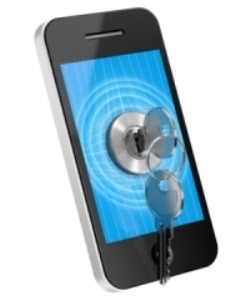Smartphones are picking up popularity. You can now access email, social media, and other things from a device that fits in your pocket (most of the time). And, although we hear about breaches and security flaws in the news, it seems like a lot of us don’t think it applies to our mobile device. Here are some of the most common mobile security myths.

- “Antivirus protection isn’t worth it for a smartphone.” Just because this device fits in the palm of your hand doesn’t mean it’s not worthy of as much protection as your computer. It should have comprehensive security that includes, antivirus, anti-malware and anti-spyware. Think of how often and indiscriminately you use that little thing, even while you’re in between bench press sets or stuck in line somewhere. The more you use it, the more important protecting the information on it becomes.
- “If I lose my phone I’ll just call it to find it.” A better way to locate it is to use an app with global positioning system (GPS), like McAfee® Mobile Security. With GPS, you can see the location of your device on a map, much easier than trying to hear your ringtone.
- “Smartphones don’t get phishing scams.” Actually, phishing scams can occur via text (also known as SMiShing ) and social media apps. Plus, the mobile device’s smaller screen makes it harder to detect suspicious links.
- “Apps for my phone are safe if they’re from trusted brands.” Fraudsters can easily make a malicious app look safe, and can even find its way into a reputable app store. McAfee Labs™ found that over 80% of Android apps track you and collect your personal information. Apps are also the main way that malware can be downloaded to your smartphone or tablet.
- “As long as my phone has PIN protection, it’s fine to have apps automatically log into my accounts.” A PIN is incomplete protection because hackers may guess the PIN code or use software to nail the four-digit sequence. You’d be surprised how many people’s PINs are 1234 or 2222. Even if you have a longer PIN or passcode on your device, it’s good practice to not have your apps automatically log you in, even though this may be convenient. You don’t want something to be able to easily access your bank accounts or post random messages on your social accounts.
- “SMS” adds protection. The short message service does not provide protection or monitoring of any kind. This means that text messaging is not secure and in fact, it’s often subject to spam.
Keep your mobile device safe with McAfee® Mobile Security, available on both Android andApple devices. The Android version includes antivirus and anti-malware software, an app manager, anti-theft features, and web protection. The Apple version includes Secure Vault to protect your pictures and videos from prying eyes.
Robert Siciliano is an Online Security Expert to McAfee. He is the author of 99 Things You Wish You Knew Before Your Mobile was Hacked! Disclosures.
Comments